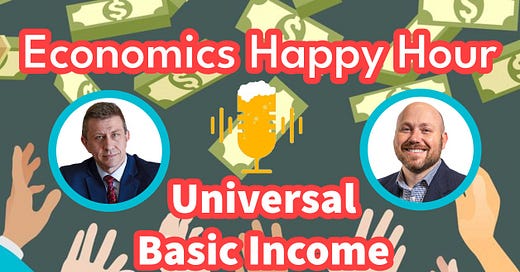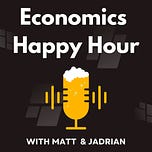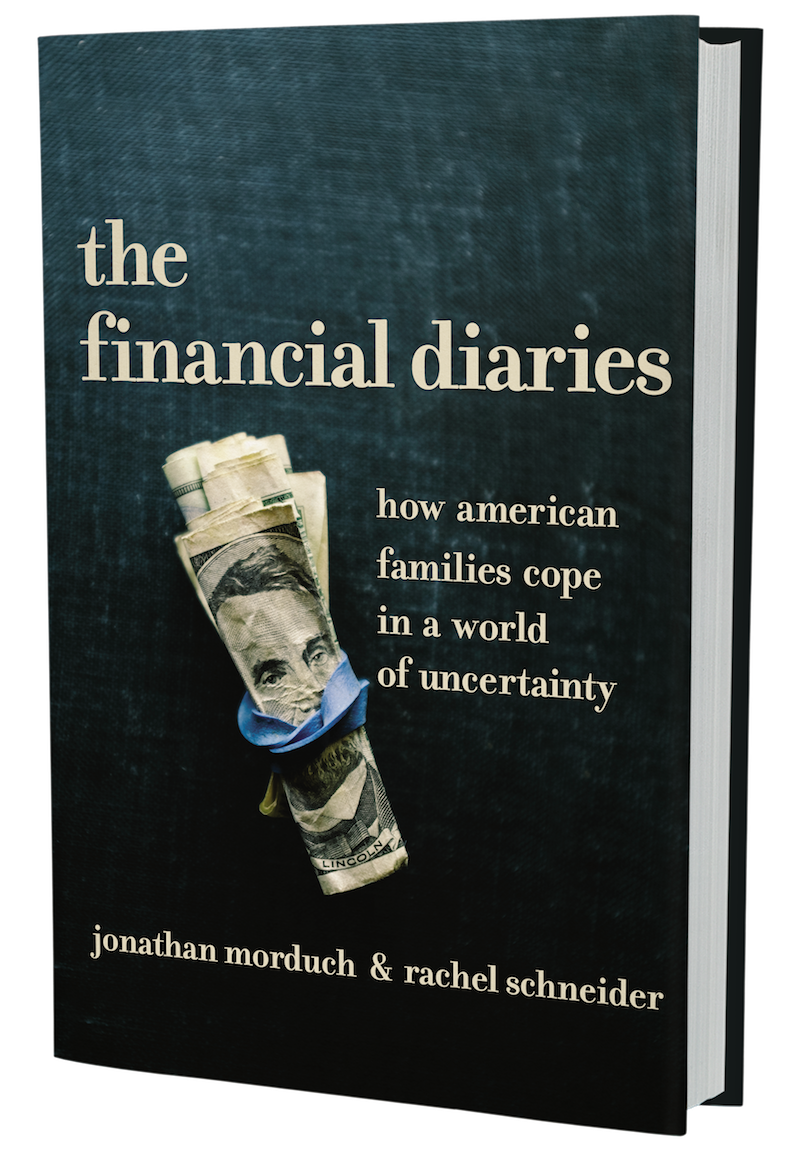Matt and Jadrian are back in the studio and discussing a controversial topic: Universal Basic Income. The previous few episodes have all centered around the JET SET conference in Northern Kentucky, and this was our first chance back to normal on Zoom. You’re catching both of us at the start of the semester, so spirits are high. We opted to channel that energy into a controversial topic. We talked about the pros and cons but really tried to focus on the goals of UBI versus the actual impact of those programs. While it’s a nice program in theory, as soon as conditions are put on UBI it becomes welfare instead of entitlements.
In this episode, we discuss:
The general idea behind Universal Basic Income
What are the benefits and drawbacks of a Universal Basic Income Plan
And a whole lot more!
Catch up on some old episodes:
You can also listen to us on Google Podcasts, TuneIn Radio, and Apple Podcasts. If one of these is your go-to podcast service, be sure to rate us and subscribe!
Watch this episode on YouTube:
Some show notes:
We kicked off today’s episode by chatting about how teaching was going and comparing it to when we were back in the middle of the pandemic trying to teach in a hybrid method. Those less-than-fond memories were enough to warrant a couple of drinks. Matt is drinking a Shiner Sea Salt & Lime lager and Jadrian is drinking another Del’s Shandy by Narragansett.
A few episodes ago, we covered the issue of school vouchers, which Matt knew a lot more about so Jadrian asked questions. In this episode, we flipped things. While Matt knew a bit about Universal Basic Income, Jadrian had taught it and thought much more about it, so Matt got to ask Jadrian questions.
Here is a modified definition of universal basic income from Wikipedia:
Universal basic income (UBI) is a social welfare proposal in which all citizens of a given population regularly receive a guaranteed income in the form of an unconditional transfer payment (i.e., without a means test or need to work). It would be received independently of any other income. If the level is sufficient to meet a person's basic needs (i.e., at or above the poverty line), it is sometimes called a full basic income; if it is less than that amount, it may be called a partial basic income. No country has yet introduced either, although there have been numerous pilot projects and the idea is discussed in many countries. Some have labelled UBI as utopian due to its historical origin.
In the United States, Democratic Presidential Candidate Andrew Yang proposed a $1,000/month UBI as part of his campaign, and many other cities/states/localities have attempted to put UBI schemes in place. Investopedia has a nice summary of the pros and cons of UBI, but a lot of our early conversation focused on the mental health impacts of being able to provide low-income citizens with a fixed payment to help ease the stress around inconsistent income and managing meetings related to other welfare programs.
A portion of Jadrian’s support from some sort of program is based on his reading of The Financial Diaries by Jonathan Murdoch and Rachel Schneider. The book is based on the US Financial Diaries project that tracked 235 low- and moderate-income households over the course of a year to collect highly detailed data on how families manage their finances on a day-to-day basis. This research reveals hard-to-see aspects of the financial lives of working Americans.
Did we miss a pro and/or con that you think we missed? Leave us a comment and let the community know!
This week’s pop culture references:
Matt recommended the new Broadway musical Here Lies Love, which has politicians making promises to voters throughout.
Jadrian recommended “The G Word” - a series that talks about the role of government in our daily lives. Often, the government is involved in ways that many of us don’t see.




















Share this post